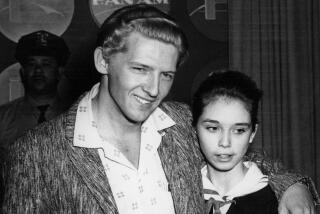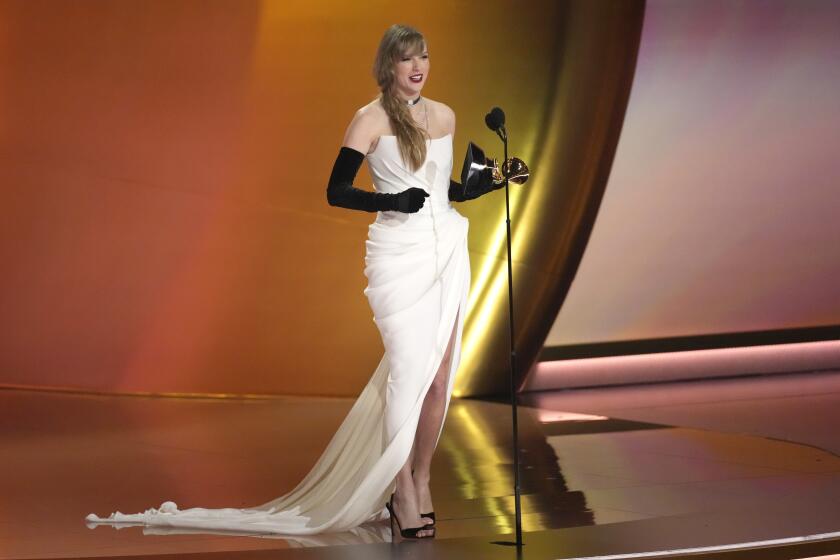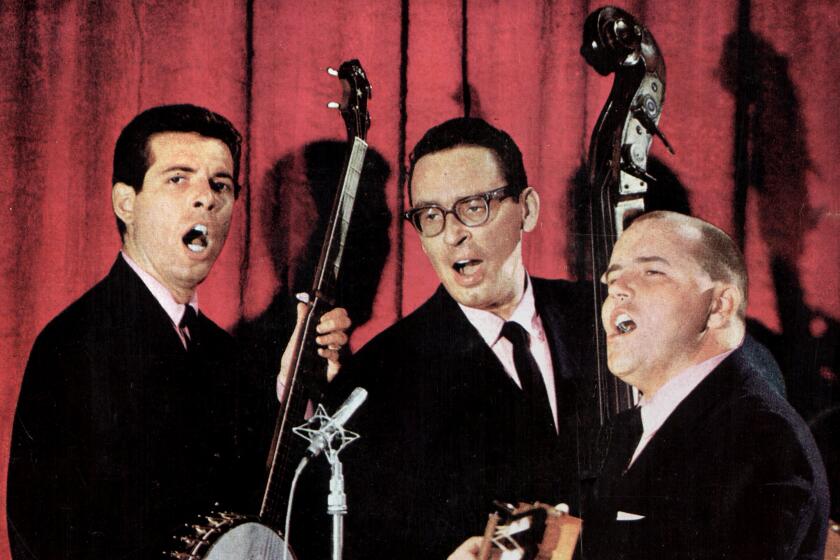How ‘Cadillac’s’ art imitates life
Just as Joaquin Phoenix did a marvelous job capturing the music and spirit of Johnny Cash in the film “Walk the Line,” Jeffrey Wright delivers a knockout portrayal of bluesman Muddy Waters in the recently released period drama “Cadillac Records.”
The actor’s vocal dynamics are so striking on songs “I’m a Man” and “(I’m Your) Hoochie Coochie Man” that he alone is almost enough to make a winner out of the film’s soundtrack, but he doesn’t get enough help from his supporting cast.
Beyonce’s attempts at the sultry stylings of Etta James and rapper-actor Mos Def’s efforts to match the lilt of Chuck Berry fall so short that there’s no reason to settle for anything less than the real thing.
Fortunately, some fast-thinking execs at Universal Music Enterprises have put together a rival collection to the soundtrack: “The Best of Chess” is a 16-track CD that contains the original versions of songs used in the film.
The set not only better salutes the legacy of Chess Records, but it also provides a more engaging look at some of the innocence and passion of rock’s first decade.
In fact, the retrospective is so inviting that listeners will be tempted to dig deeper into the back catalog of Chess Records, the celebrated Chicago record company that, along with Atlantic and Sun, was one of the most important labels in the birth of rock ‘n’ roll.
“The Best of Chess”
Various Artists
Geffen/Chess/UME
The music: The retrospective includes the original versions of nine songs that are found on the 13-track single disc edition of the “Cadillac Records” soundtrack and seven songs featured only on the 26-track, two-disc deluxe edition -- so it’s not possible to put “Best of Chess” against either of the soundtrack packages on a song-by-song basis. But it is possible to rate the versions on “Best of Chess” against the versions from the film.
Jeffrey Wright’s “I’m a Man” versus Bo Diddley’s “I’m a Man.” In the movie, the song is called “I’m a Man,” but Wright performs it more in the aggressive, rock-blues nature of the revised version that Waters titled “Mannish Boy” and recorded in “Hard Again,” the 1977 album he made after leaving Chess Records. On the Chess compilation, the song is represented by the original Bo Diddley recording of “I’m a Man.” In that battle, Wright deserves at least a tie with Diddley because his treatment has more of the power and lust of Waters’ rendition. Tie goes to the soundtrack.
Beyonce’s “At Last” and “I’d Rather Go Blind” versus Etta James’ recordings of the same tunes. Beyonce is a gifted singer, but she’s not a great stylist. She can hit all the notes, but she rarely makes us feel the extreme edges of emotion. That’s a big limitation for someone who wants to operate in the shadow of James, a master when it comes to conveying what it’s like to live through hardship. The difference between the versions of these songs goes a long way toward explaining why Beyonce is known as a pop singer and James a blues singer. Score one for the retrospective.
Mos Def’s “Nadine” and “No Particular Place to Go” versus Chuck Berry’s recordings. Mos Def has lots of trouble copying Berry’s “duck walk” in the film, and he has almost as many problems trying to reflect the vitality and edge of Berry on record. When you play the recordings back to back, Berry is the one who truly rocks. Score two more for the retrospective.
Eamonn Walker’s “Smokestack Lightnin’ ” versus Howlin’ Wolf’s recording. Walker deserves credit for even attempting a Howlin’ Wolf song. There hasn’t been anyone in the last 50 years who has shown the raw, primal fury of the Mississippi bluesman. Score wise, it’s time for the soundtrack to throw in the towel.
Though most of the “Cadillac Records” interpretations are acceptable within the context of the film, they simply don’t stand up against the originals. In an apparent move to give the soundtrack more clout, the album contains tracks by Beyonce, rapper Nas and others even though they don’t involve songs from the Chess era.
Too bad they didn’t use the space on the record to give us more of Wright’s odes to Muddy Waters.
Further listening: Chess’ “The Definitive Collection” series is a bargain hunter’s delight. Each of the various discs in the series devoted to Chess’ key blues, R&B; and rock artists, including Berry, Waters, James and Bo Diddley, who is not represented on the soundtrack album. They contain at least 20 tracks and can be found for less than $10 each from Internet retailers.
For a more concentrated look at the blues history of Chess, the four-disc “Chess Blues” is highly recommended. Besides nearly two dozen tracks by Waters and Wolf, the set contains works by John Lee Hooker, Elmore James, Lowell Fulson, Sonny Boy Williamson and Buddy Guy.
The 101-song collection includes 19 previously unreleased recordings. The boxed set also includes a handsome, 64-page booklet with notes about each of the tunes.
--
--
Backtracking is a monthly column devoted to CD reissues and other pop items of historical importance.
More to Read
The biggest entertainment stories
Get our big stories about Hollywood, film, television, music, arts, culture and more right in your inbox as soon as they publish.
You may occasionally receive promotional content from the Los Angeles Times.






